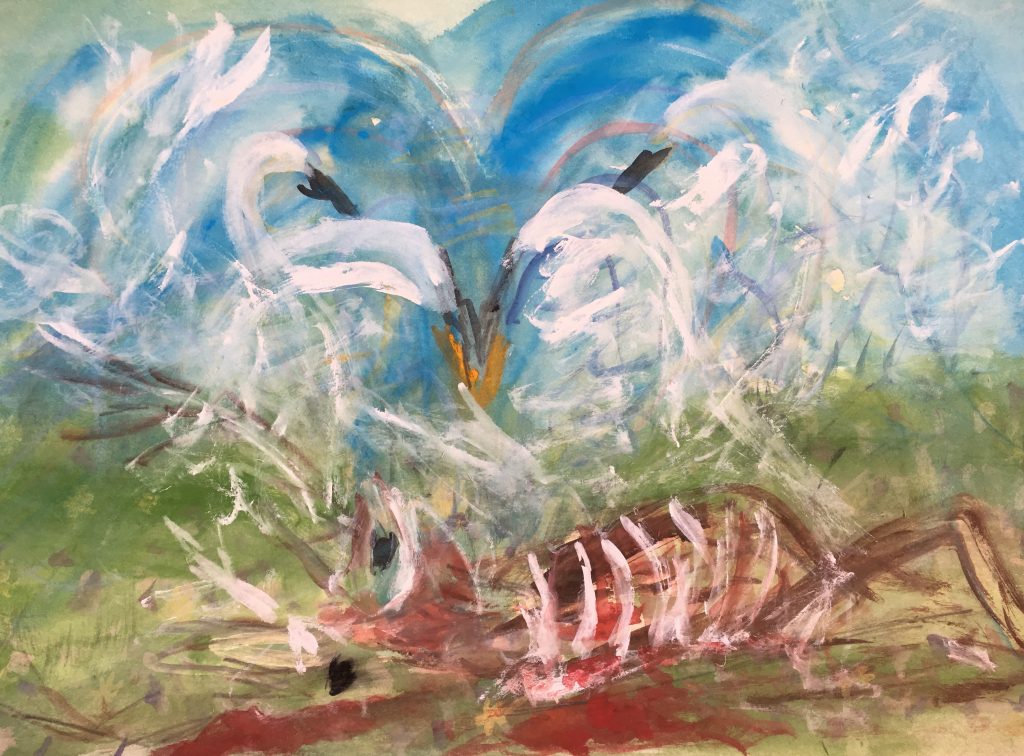Graphite, ink, and gouache on A3 paper.
From “Dead Doe: I,” by Brigit Pegeen Kelly—
From the Kenyon Review, New Series, Summer 1991, Vol. XIII, No. 3
for Huck
The doe lay dead on her back in a field of asters: no.
The doe lay dead on her back beside the school bus stop: yes.
Where we waited.
Her belly white as a cut pear. Where we waited: no: offfrom where we waited: yes:
at a distance: making a distance
we kept,
as we kept her dead run in sight, that we might see if she chose
to go skyward;
that we might run, too, turn tail
if she came near
and troubled our fear with presence: with ghostly blossoming: with the
fountain’s
unstoppable blossoming
and the black stain the algae makes when the water
stays near.
We can take the gilt-edged strolling of the clouds: yes.
But the risen from the dead: no!The haloey trouble shooting of the goldfinches in the bush:
yes: but in season:kept within bounds,
not in the pirated rows of corn,
not above winter’s pittance of river.The doe lay dead: she lent
her deadness to the morning, that the morning might have weight, that
our waiting might matter: be upheld by significance: by light
on the rhododendron, by the ribbons the sucked mint loosed
on the air,
by the treasonous gold-leaved passage of season, and youfrom me/child/from me/
from . . . not mother: no:
but the weather that would hold you: yes:hothouse you to fattest blooms: keep you in mild unceasing rain, and the fixed
stations of heat: like a pedalled note: or the held
breath: sucked in, and stay: yes:
staybut: no: not done: can’t be:
the doe lay dead: she could
do nothing:the dead can mother nothing . . . nothing
but our sight: they mother that, whether they will or no:they mother our looking, the gap the tongue prods when the tooth is missing, when
fancy seeks the space.The doe lay dead: yes: and at a distance, with her legs up and frozen, she tricked
our vision: at a distance she was
for a moment no deer
at allbut two swans: we saw two swans
and they were fighting
or they were coupling
or they were stabbing the ground for some prize
worth nothing, but fought over, so worth that, worth
the fought-over glossiness: the morning’s fragile-tubed glory.And this is the soul: like it or not. Yes: the soul comes down: yes: comes
into the deer: yes: who dies: yes: and in her death twins herself into swans:
fools us with mist and accident into believing her newfound fineryand we are not afraid
though we should beand we are not afraid as we watch her soul fly on: paired
as the soul always is: with itself:
with others.
Two swans . . .Child. We are done for
in the most remarkable ways.
